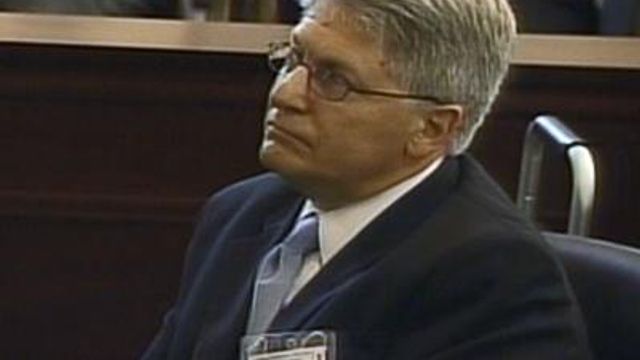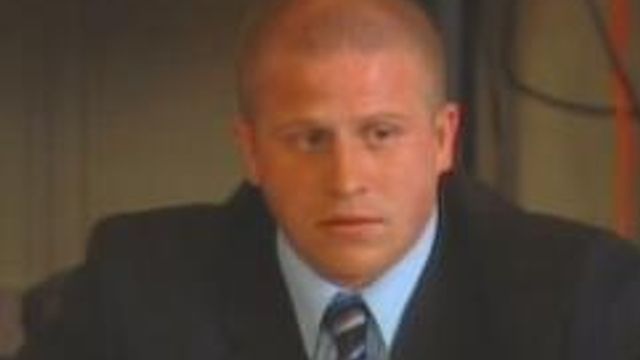Local News
DNA Report Wasn't Final, Lab Director Testifies
Mike Nifong never asked for a final report that would have included potential exculpatory DNA evidence in the Duke lacrosse case, a DNA lab director testified Wednesday.
Posted — UpdatedRALEIGH, N.C. — Mike Nifong never asked for a final report that would have included potential exculpatory DNA evidence in the Duke lacrosse case, the director of the Burlington private laboratory DNA Security Inc. testified Wednesday.
Instead, Dr. Brian Meehan said, the district attorney told him that a May 12 report was for an upcoming court proceeding and that it needed to specifically address matched DNA up to that period of time.
Meehan stressed they did not conspire to hide evidence from defense attorneys and that the report he provided was never intended to be all-inclusive.
"We don't typically force-feed reports to clients," Meehan said. "When he was ready for a final report, we thought he would let us know."
Nifong faces several charges by the North Carolina State Bar that he violated ethics rules in connection with his handling of the case. Those include withholding DNA evidence from defense attorneys and making false statements to the court.
In May, Nifong released that initial report to defense attorneys, who quickly trumped the news that DNA Security had been unable to find a conclusive match between the accuser, Crystal Mangum, and any lacrosse players.
It was not until much later, however, that the defense received the background details of the test results, which indicated there was genetic material from several males found in the accuser's underwear and body, but none from any member of the lacrosse team.
In December, Meehan said he did not include that information in the May report as part of an agreement with Nifong.
Under cross-examination Wednesday by Nifong's attorney, David Freedman, Meehan said only he was concerned that releasing all that information would have violated the privacy of those tested.
But Meehan said that had Nifong asked for the information, he would have turned it over. He hinted that defense attorneys should have noticed right away it was missing.
"I have to take the blame, it was my report, and I didn't do my job, and I expected maybe too much," Meehan said. "But I'm surprised that a lawyer reading the report ... would not see that and say, 'Hey, what's he talking about?'"
Meehan also testified about three meetings in which he told Nifong, Durham police investigator Benjamin Himan and Sgt. Mark Gottlieb that there were no DNA profile matches of any lacrosse players found on Mangum.
Nifong hired the private lab to conduct further complex testing after the State Bureau of Identification failed to match any of the lacrosse players' DNA to evidence found on Mangum.
Meehan said he and Nifong "talked at length" about the DNA evidence and its limitations. Although there was not enough evidence to match a suspect, there was enough information there to exclude one, Meehan testified.
State Bar prosecutor Doug Brocker asked Meehan about the matches five times whether the district attorney was aware of the lab's original findings before Nifong's attorneys objected to the questioning.
Nifong, characterized by state Attorney General Roy Cooper as a rogue prosecutor who was rushing to accuse, also faces charges that he made inflammatory comments about the case and suspects that were prejudicial.
Dudley Witt, Nifong's attorney, spent more than an hour Wednesday morning cross-examining Himan in an attempt to establish reason why Nifong believed Mangum told police she was raped, beaten and sexually assaulted by three Duke lacrosse players.
Witt asked Himan about his role in the investigation, and recounted police interviews and written accounts from lacrosse players, witnesses, Mangum, and the second dancer, Kim Roberts.
Himan also testified that Nifong never asked him to withhold evidence and did not coach him before his appearance before a grand jury.
Himan's attorney interjected when the Bar's Disciplinary Hearing Commission chairman, F. Lane Williamson, asked Himan about his testimony during the proceedings, saying his client was prohibited from disclosing that information. In North Carolina, jury proceedings are secret, and there is no record of them.
On Tuesday, Himan testified that Nifong pushed forward with the investigation, even though Himan had expressed concerns that there was a lack of evidence.
Himan testified that Nifong acknowledged privately that Mangum's story was filled with inconsistencies and the case would be hard to prove.
Himan said Nifong knew about the accuser's history of mental illness, and about a previous accusation of rape that didn't lead to an arrest, before he decided to seek indictments against Reade Seligmann, Collin Finnerty and Dave Evans.
"We didn't have any DNA. We didn't have him at the party," Himan said of Seligmann, who is expected to testify at Nifong's trial. "It was a big concern to me to go for an indictment with not even knowing where he was -- if he was even there."
Freedman told WRAL that Tuesday's testimony from Himan has no affect on the case, because the evidence did not address the charges his client faces.
In December, Nifong dropped the rape charges against the three defendants after Mangum wavered in key details of her story.
In January, Himan said Tuesday, Nifong met with Mangum about the case and told her that if she thought the investigation had been hard on her at that point, it would only get harder. And if she wanted to proceed with kidnapping and sexual assault charges against the players, he was going to turn the case over to a special prosecutor, Himan said.
Cooper dismissed those remaining charges in April, not only citing a lack of credible evidence that an attack occurred but also declaring Seligmann, Finnerty and Evans innocent.
• Credits
Copyright 2024 by WRAL.com and the Associated Press. All rights reserved. This material may not be published, broadcast, rewritten or redistributed.






